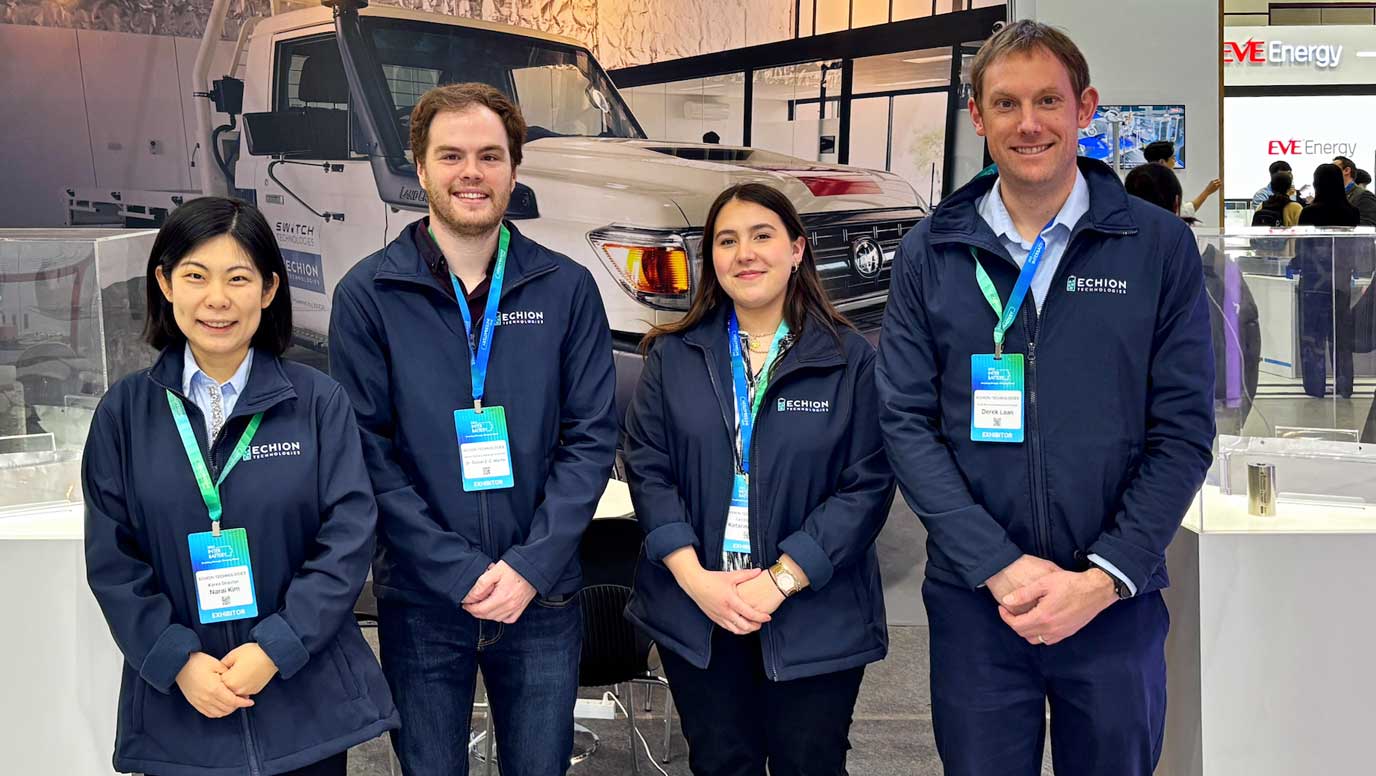Cambridge battery innovator making inroads in Asia

Echion Technologies, founded in 2017 by Dr Jean de La Verpilliere and Dr Alex Groombridge, emerged from the University of Cambridge’s Department of Engineering with a clear goal: to commercialise a new class of lithium-ion battery which can reliably fast charge.
The company’s proprietary material, XNO®, offers several advantages over conventional graphite anodes - most notably ultra-fast charging, as well as enhanced safety and longevity. These features are particularly important for the operation of heavy-duty industrial vehicles in sectors such as mining and construction and in energy storage, but also ‘high duty cycle’ applications in general.
Despite the technology’s potential, entering the Asian market – the global epicentre of battery innovation – was a daunting prospect. “Asia is where the industry is centred,” said Ben Ting, Echion’s Chief Commercial Officer. “But the cultural, linguistic, and logistical barriers made it difficult to navigate alone.”
With these challenges in mind, in 2022, Echion turned to Intralink, a business development consultancy with particular expertise in helping western companies expand in Asian markets. Intralink was tasked with representing the company in China, Japan and South Korea - home to some of the world’s largest battery manufacturers.
Two key challenges faced Echion in this venture. First, it was unknown in Asia. Second, its niobium-based technology, though potentially disruptive, diverges significantly from the industry norm, which still largely relies on graphite.
“We knew we had to prove ourselves - not just technically, but also as a credible player in a deeply interconnected and complex supply chain,” said Ting.
Intralink’s teams, fluent in local languages and familiar with the business cultures, began by mapping out the industrial battery landscape in each market. They also identified the key players across the value chain: original equipment manufacturers (OEMs), cell producers, system integrators and component suppliers.
This groundwork done, they then secured and facilitated more than 200 meetings across the three markets with potential partners and customers for Echion. To help build Echion’s profile in the region, the Intralink team also represented the company at major trade shows and managed the launch of its Chinese subsidiary. The response was encouraging.
In Korea, seven of the top 12 battery makers requested material samples for testing. In China, 14 of the top 40 players expressed similar interest. Japan, where battery research is largely focused on solid-state technologies and where Toshiba already has a niobium-based product, proved a tougher market, though some exploratory conversations were initiated, including with other battery innovators whose technology complements the characteristics of XNO®.

Echion’s initial goal was to secure Material Transfer Agreements (MTAs) - a crucial first step that allows potential customers to test new materials. In this, it certainly succeeded. So far, more than 20 MTAs have been signed.
On top of this, a demonstrator vehicle using Echion’s cells in a battery pack built by Li-FUN, a Chinese manufacturer, is operating in Australia. The company is also exploring joint development opportunities and other partnerships.
Derek Laan from Intralink’s Seoul office, explained: “In Asia, business is conducted face-to-face, with critical relationships built over time. For new entrants from the west, this can be challenging to get right - especially given the language barriers and cultural differences.
“Our local teams understand the technology ecosystem of each market and how business is done, enabling us to identify the biggest opportunities and helping to open doors that would otherwise remain shut.
“Working in close partnership with the Echion team, it’s been rewarding to see how quickly initial interest in its technology has transformed into real commercial momentum.”

Ben Ting continued: “We’re operating in a complex and sensitive sector and at multiple levels in the battery supply chain. This means our move into Asia has inevitably had challenges. Nonetheless, in 2022, we were unknown in the region, whereas today, we’re participating in a diverse range of pilot projects and seeing real commercial traction, particularly in China and Korea.
“Making more progress in Japan remains an ambition but, right now, there’s so much potential in China and Korea that our priority is to deepen our relationships there and turn the pilot projects into long-term supply agreements.”

